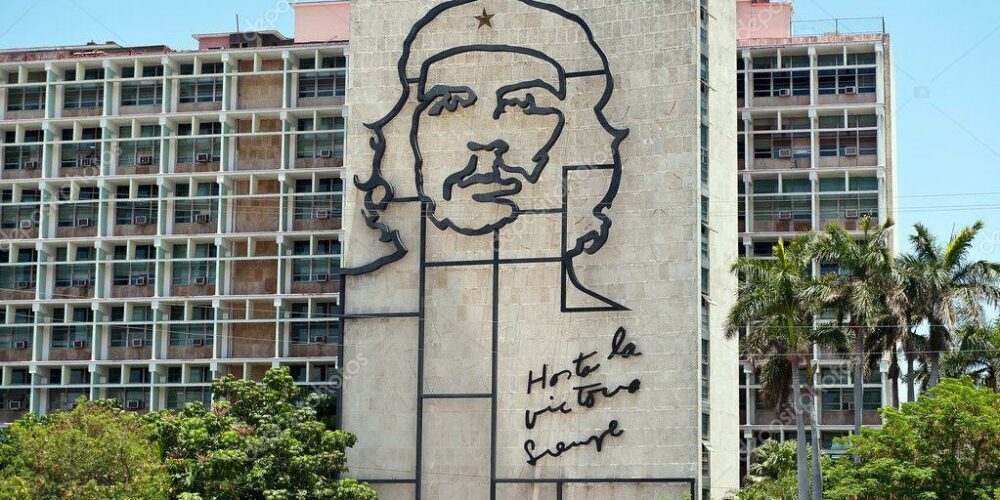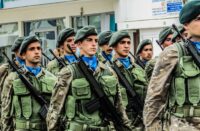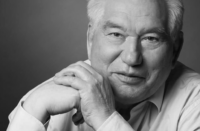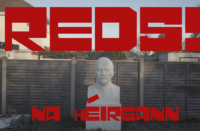Part 2
■ Part 1 was published in the April issue; read it here
Cuba’s nature as a “privileged satellite” within the US imperialist expansion created an aspiration in its bourgeoisie and sectors of its middle class, linked to the symbolic dominance and prevalence, in many, of the so-called American way of life.
This was a visible influence in our society, which originated in the nineteenth century and was consolidated in the neocolonial period. The Cuban Revolution openly challenged this with the traditions, customs, habits, beliefs of the most genuine of the “ajiaco” (stew) that constitute the extraordinary combination we call Cuban. It has been forged over centuries. This Cuban way of being, feeling and doing, which necessarily identifies our nation, was developed by the people in confrontation with projections that surrendered to a new style of colonialism.
The subject must be addressed in depth, without over-simplifications or vulgarisation, which have emerged based on improvisation, speculation, and a lack of knowledge of critical aspects of Cuban history and culture.
There are research centres, researchers, scholars who can contribute to a better understanding of Cuban ideology, which found in Marxism a method and a practice that allowed us to channel much of previous revolutionary thought, particularly that of José Martí. These are our strengths.
The person who made the Cuban Revolution, Fidel Castro, broke with dogmas that ruled out the possibility of a revolution in Cuba succeeding, including the theory of geographical fatalism, the idea that “a revolution can be made with the army, without the army, but not against the army” and that “for a revolution to triumph in Cuba, it must first have triumphed in the United States.” He understood that change in Cuba, the road to socialism, must respond to the most pressing needs of Cuban society, and be profoundly humanist, addressing education, public health, agrarian reform, urban reform . . .
And moreover, it must have a vision of the future, a great humanist revolution advancing in the construction of a new socialism confronting the problems of Latin America and the Third World, with US imperialism as the fundamental obstacle.
Cuban thought was also characterised by establishing, from its very beginnings (Félix Varela, José de la Luz y Caballero, Rafael María de Mendive), the link between science, consciousness and virtue.
For the country to develop needed were scientific thought and practice that reflected a patriotic sentiment which in turn contributed to shaping national consciousness (science to create consciousness; consciousness to do science). This was linked to ethical practices in all aspects of the country’s life. It was the Cuban school that conveyed in all social spheres the aspiration to build a new, free, humanist society, with social equality.
Overcoming the orthodoxy-heterodoxy dichotomy is the key to developing a true Marxist dialectical understanding of Cuba’s evolution and reality, one that allows us to understand not only the original texts that give life to a Marxist point of view but also to appreciate the results of the contribution of Marxist thought in the twentieth century and the beginning of the twenty-first, their contradictions, and that which, through the praxis of the Cuban Revolution, led to the development of a revolutionary consciousness that was not only patriotic but included identification with the revolutionary project, its specific content defining social classes and class struggle, in a country in which slavery, colonisation, neocolonial restoration, the racial problem and its place in the expansion of US imperialism (different in its evolution from the European empires) has shaped and given specific characteristics to the class struggle in Cuba.
Investigation of the development of the communist ranks and revolutionary sectors leads to the conclusion that, in many cases, exposure to texts fundamental to the ideology of the Cuban Revolution is absent or deficient.
Moreover, the absence of certain fundamental aspects of our revolutionary theory can be noted in a significant portion of the population.
In this regard, the formation of philosophers and intellectuals, who need to deepen and update theory, based on Cuban revolutionary practice, must be differentiated from what should be general knowledge of the classic works of the Cuban Revolution’s ideology.
I would recommend identifying a selection of readings of the most important works of the revolutionary theory and the dissemination of these works accompanied by seminars, courses, and debate workshops.
Writing manuals is not advisable, given their customary structure, which necessarily reflects the opinions of their authors and reduces the richness, both literary and content, of the classics of revolutionary thought. Additionally, students must have access to selections of readings to evaluate observations of the classics, which are not usually included in the manuals.
In the development of Cuban revolutionaries, particularly communist militants, mastery of the fundamental ideas of José Martí and Fidel Castro, the constructors of Cuban revolutionary thought, is essential. A connection must be established with Marxist training, to create a dialectically linked whole.
Likewise, the works of important Cuban revolutionary thinkers should be considered, such as Felix Varela, Carlos Manuel de Céspedes, Ignacio Agramonte, Antonio Maceo, Máximo Gómez, Diego Vicente Tejera, Julio Antonio Mella, Antonio Guiteras, Rubén Martínez Villena, Pablo de la Torriente Brau, Juan Marinello, Carlos Rafael Rodríguez, and Blas Roca, among others.
Also essential is the inclusion within these studies of figures who developed a knowledge-building body of thought, addressing who we are, whether in poetry or in the social sciences. Let us name here Fernando Ortiz, Nicolás Guillén, Alfredo Guevara, Roberto Fernández Retamar, and Fernando Martínez, who, along with a number of other essayists, have made an essential contribution to a better understanding of Cuban society.
A selection of works that allows for the comprehensive development of Cuban revolutionaries is needed. As a contribution to the realisation of such a project, I submit the following:
Basic library of the Cuban revolutionary
• Karl Marx: The Communist Manifesto; Eleven Theses on Feuerbach; Prologue to the Critique of Political Economy; and Critique of the Gotha Programme.
• Friedrich Engels: The Role of Labour in the Transformation of Ape to Man.
• José Martí: Selected works from Our America, on the United States, its national and international projections, the party, and the necessary war.
• V. I. Lenin: Imperialism, the Highest Stage of Capitalism; The State and Revolution.
• Antonio Gramsci: Selected Letters from Prison.
• Julio Antonio Mella: Glosas al Pensamiento Martiano y Selección de Otros Trabajos.
• Antonio Guiteras Holmes: El Septembrismo and Programa de la Joven Cuba.
• Fidel Castro: Selection of key texts on conceptual issues from the Moncada to his mature definition of the concept of revolution in his speech of 1 May 2000. (The Fidel Castro Centre is at present working on the selected works.)
• Ernesto Guevara: Socialism and Man in Cuba; Letter to Fidel Castro, 25 March 1965.
Selection of texts that provide a comprehensive overview of the complexities of today’s global strategic panorama
This selection of readings can be complemented with important works that allow a better understanding of the periods in which these classic authors wrote.
• Biography of Marx by Franz Mahring; biography of Lenin by Gerald Walter; biography of Martí by Jorge Mañach and Cintio Vitier; biography of Guiteras by José Tabares del Real and Paco I. Taibo; biography of Che by María del Carmen Ariet and Taibo; and biography of Fidel Castro by Katiuska Blanco.
• Additionally, Army General Raúl Castro and President Miguel Díaz-Canel Bermúdez have delivered speeches of special relevance to the ideological struggle and the strengthening of the Revolution’s ideology at this time. The most relevant speeches during party, government and public events, as well as Díaz-Canel’s comments on Fidel, “Words to the intellectuals,” and his speeches during the last congress of the Union of Cuban Writers and Artists (UNEAC), should be necessary reading, not only as a complement to the revolutionary classics but also as the key to understanding current strategies and conceptions of the battle faced today by the Cuban Revolution, on all its diverse fronts.
It is evident that the amplitude and complexity of the selections identified as resources implies the need for adjustments in each case, taking into account the level and length of development activities in which they are used.






